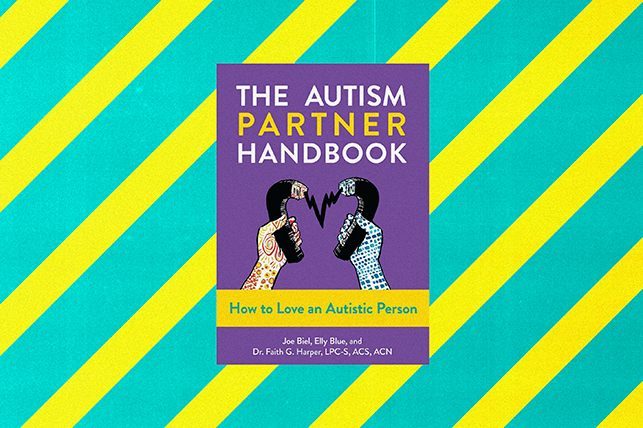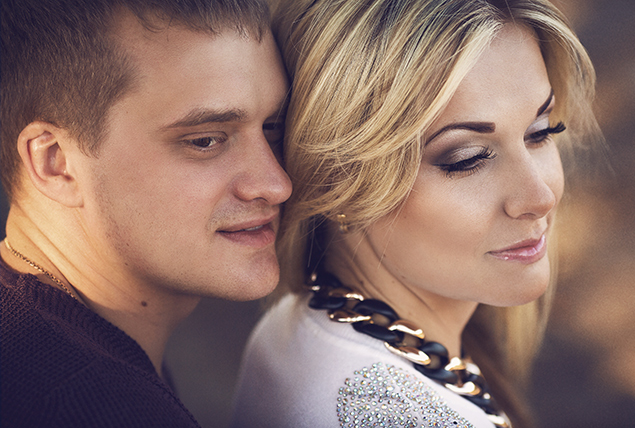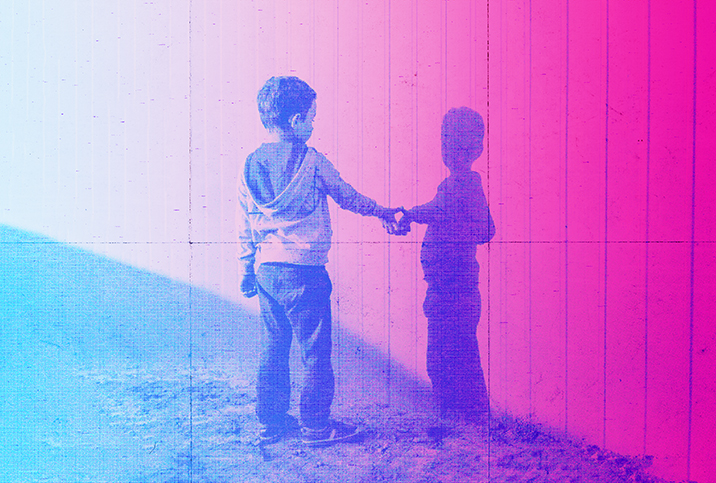Figuring Out How to Live and Date With Autism

Autism, or autism spectrum disorder (ASD), is a common condition, with 1 in 44 children in the United States diagnosed with the disorder. ASD refers to a broad spectrum of symptoms and conditions, such as challenges with social skills, speech, communication and repetitive behaviors.
The most important aspect to understand about ASD, however, is that it is a spectrum disorder, meaning each individual with ASD has their own unique set of challenges, strengths and severity of symptoms. Many people with autism have successful platonic and romantic relationships and live fulfilling lives. You can date with autism.
Understanding autism
Signs of ASD usually appear when a child is about age 2 or 3, but many people go undiagnosed with the condition until well into adulthood. That's because the understanding of autism has evolved rapidly over these last decades, and doctors are still learning more every day.
Autism doesn't have a single distinguishable cause. Instead, current research suggests ASD is caused by several factors, including gene mutations, family history and environmental factors. Vaccines play no part in a person developing autism, according to experts.
Common symptoms of autism include the following:
- Issues with verbal communication
- Difficulty holding eye contact
- Difficulty reading body language or social cues
- Issues expressing emotions
- Repetitive body movements
- Ritualistic or repetitive habits
- Tendency to be alone or in "their own world"
- Sensitivity to sound, light, texture or other factors
- Specific food preferences
There are many other ways in which autism can present, and the severity varies between individuals.
About 40 percent of people with autism are nonverbal, according to Autism Speaks. Challenges with communication can cause difficulty in navigating the world. Therapy and symptom management can make living, and even dating, with autism a little easier for some individuals.
"[Dating] is very dependent on the function of the individual," said David Berger, M.D., a pediatrician and the founder of Wholistic Pediatrics & Family Care in Tampa, Florida. "Some of my patients have difficulty meeting people but can find success in therapeutic social skills groups led by professionals who facilitate interactions. Unfortunately, many people with autism likely will not be able to date."
How to live with autism
Autism spectrum disorder is a type of neurodivergence. Many people with ASD may go through life without too much difficulty, working a job, attending school, and engaging in typical social interactions and situations. People with autism need varying levels of accommodation and support to succeed, and gaining that support from outside the family unit can be daunting.
When should a person with ASD disclose their diagnosis? It's really up to the individual.
"There is no right or wrong time. A lot of people still don't always understand much about autism, so if you do share that you are autistic, be prepared that the person you are telling may not know what that means," said Hester Grainger, a co-founder of Perfectly Autistic, a neurodiversity consultancy in the United Kingdom.
Building trust is an important step for many people to feel comfortable disclosing a diagnosis.
"There is no right time to bring up a diagnosis, but I would recommend bringing it up when your relationship is at a level that you have trust," said Julian Lagoy, M.D., a psychiatrist with Mindpath Health in San Jose, California.
"It might be good to share some of your autistic traits and what that means to you," Grainger said. "For example sharing your special interests that excite you or traits that make your life challenging."
Many people with ASD have special interests, topics, or activities that they fixate on and find fascinating. Sharing those interests with others or making friends through those hobbies can be a good way to connect socially.
People with autism need to take care of their mental health because it is common for other mental health issues to present as comorbidities of autism. Social isolation or feelings of being misunderstood may contribute to feelings of anxiety or depression. About 20 percent of adults with autism were also diagnosed with an anxiety disorder, according to a 2019 study published in the Journal of Autism and Developmental Disorders.
Some people on the spectrum may react strongly to smells, textures or specific environments, so learning to recognize triggers and manage them accordingly can be helpful.
"Sensory issues like strong smells, bright lights or loud sounds might negatively impact you, so make sure that you manage those if possible," Grainger said. "For example, if you know somewhere is going to be loud and smelly, it might be best to find somewhere that is more sensory friendly."
Living with autism is easier for some people than others, but self-care and understanding your triggers or symptoms can be useful in navigating the world. Regular therapy can help.
How to date with autism
Dating with autism is entirely feasible, as long as both people understand the needs of the other and respect boundaries. Autism and intimacy are not mutually exclusive.
"Once you are in a relationship, honesty and communication are key," Grainger said. "Both partners talking about how they are feeling and being open will help build a great base."
Before putting themselves into the dating pool, all people (not just those with autism) should be sure they are ready for the possible emotional turbulence and heartache that dating can bring. For people with ASD, this could mean therapy and treatment to ensure they're in the right headspace to enter unpredictable situations.
This can also mean practice, according to Grainger.
"Before going on a date, it can be good to roleplay with a friend or family member about some conversation topics," Grainger said. "Maybe think about some TV programs you can talk about or common interests you may have."
Think through the date and location carefully, too, according to Grainger.
"If you are autistic, you may well have played out the whole date in your head already," she said. "Make sure that you choose a place or venue that you are familiar and comfortable with. An activity can be a good idea, rather than going out for dinner. Or start with catching up over a coffee, so you know you won't be there for hours (unless you want to be)."
As with all relationships—romantic or otherwise—communication is key, which can be particularly difficult for people with autism. Even communicating that communicating is challenging can go a long way in building trust.
Some people with ASD may be most comfortable dating another autistic person. There are specific dating sites just for those with autism, such as Hiki and many others. A Google search will show the many options. There are also student groups, meetups and internet forums.
Supporting someone who has ASD
People on the autism spectrum need varying degrees of support, but there are ways people can ensure the person in their life feels understood and loved.
Joining a support group or organization can be a crucial step.
"I serve on the medical board for TACA, The Autism Community in Action," Berger said. "We have both online resources and services, peer counselors, and local community groups throughout the country. Families need to know that they are not alone on their journey."
Finding resources such as TACA can help you know you have a community of support. Other resources include:
- Support groups and social activity groups from the Aspergers/Autism Network (AANE)
- Research studies and information from the Autism Research Institute
- Resources and helpful apps compiled by Autism Speaks
- Information about treatment options from the Association for Science in Autism Treatment (ASAT)
You have options if you feel like you can't help enough or need additional support in helping your loved one.
"There are social services available for loved ones of people with autism," Berger said. "Some people need help applying for SSI and other financial assistance. Others need help obtaining and paying for aides and various therapists. Many communities have clinical therapists who run family and sibling support groups."
Many people get diagnosed with autism later in life, which can be confusing or overwhelming for their partners or spouses. Immersing yourself with autism knowledge and talking to other people with the disorder are keys to understanding.
"I would start by reading about autism and learning as much as you can," Grainger said. "Also, there are Facebook communities that you can join, which accept partners, too. They are great safe spaces where you can get support from other partners of autistic people and also autistic people will be able to offer a different perspective."
Another way to support a loved one with ASD? Talk to them. Ask them what they need from you and how you can make them feel most comfortable.
"Ask your partner what you can do to support them," Grainger said. "My husband [who is autistic] and I have been together for 21 years, and he really dislikes certain smells when I cook, so I avoid those as it causes him stress."
And, most importantly, be sure your support involves encouraging them to get the treatment or help they need to thrive.
"You can be there for them and make sure they are getting the appropriate treatment they need," Lagoy said. "You can help them go to therapy so they can learn to live with their autism and have a successful career and relationships."


















